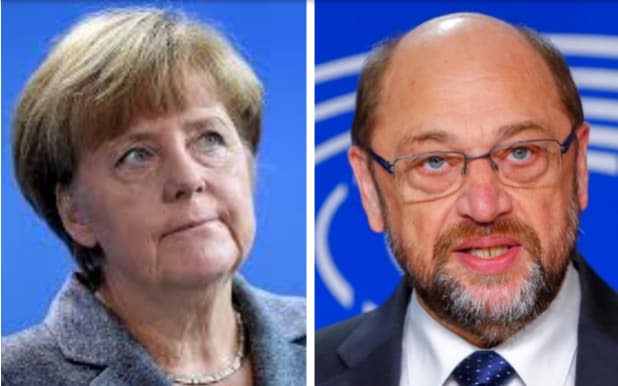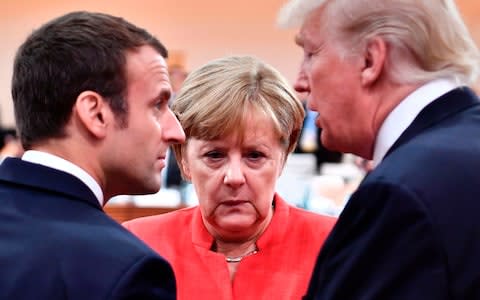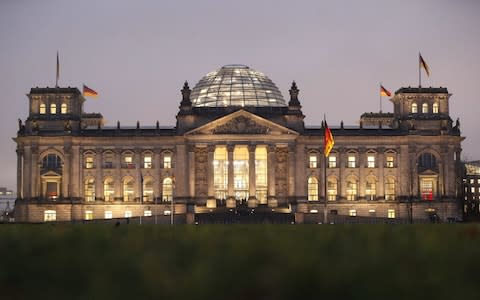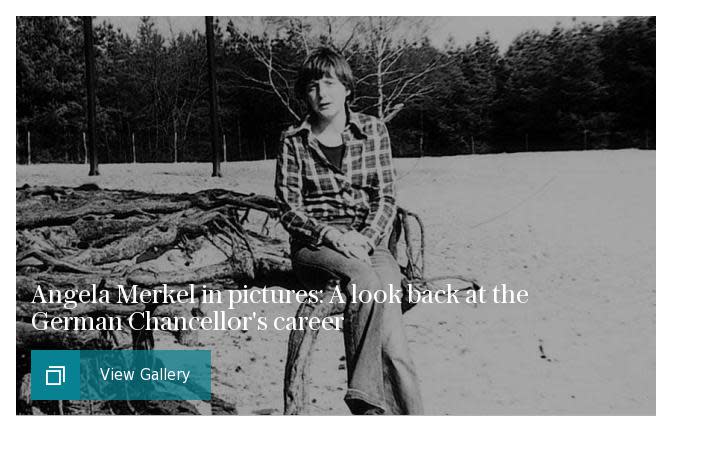When is the German election 2017 and what time will we know the result?

Germany votes this month in the last in a series of elections in key Western countries. The polls are predicting an easy win for Angela Merkel, who is trying to secure a historic fourth term as chancellor.
But after shock results saw the rise of political outsiders Donald Trump in the US and Emmanuel Macron in France, Britain’s vote to leave the EU and Theresa May left clinging to power in Britain less than a year later, nothing can be taken for granted.
When is is the 2017 German election?
German elections are always held on a Sunday, and this year the country votes on September 24. Exit polls are quick and highly accurate, and we should have a pretty clear idea of who has won shortly after voting ends. But the business of coalition building can take much longer, and it could be weeks or even months before a new government is formed.

How does the German electoral system work?
Germany has a parliamentary system, like the UK, and like our Prime Minister, the chancellor is the leader who can control a majority in parliament. The system is very similar to the British one: there is no US-style electoral college, and no second round as in France.
The one key difference is Germany’s proportional representation system, which makes absolute majorities rare. This means the struggle to secure power doesn’t end on election night: that’s when the hard work of forming a coalition begins.
As in the UK, the leader of the party which wins the most seats gets the first opportunity to build a government.

Who are the key parties and leaders?
At 63, Mrs Merkel is the “last woman standing” of a generation of Western leaders. When she first came to power, in 2005, Tony Blair was Prime Minister and George W Bush was US president.
Mrs Merkel has led her centre-right Christian Democratic Union (CDU) party to three straight election victories, and is looking for a fourth. One confusing detail is that the CDU doesn’t field candidates in Bavaria, but instead campaigns jointly with its more conservative Bavarian sister party, the Christian Social Union (CSU). The two parties automatically go into coalition together, and any seats the CSU wins count towards Mrs Merkel’s tally. They are currently leading the polls on around 40 per cent.
The main challenger is Martin Schulz, the 61-year-old former president of the European parliament. An EU ideologue and staunch Brexit opponent, Mr Schulz was hailed as the man who could take on Mrs Merkel when he became leader of the centre-left Social Democrat party (SPD) in March, but his challenge has faded since, and the party is polling around 23 per cent.

The rival CDU and SPD are currently in coalition together, but are fighting against each other in the election. Both say they do not want a repeat of the current “grand coalition”.
The anti-immigrant Alternative for Germany party (AfD) was seen as the main threat to Mrs Merkel for much of last year. But support for the party has plummeted in the polls amid infighting and a series of high-profile gaffes. Björn Höcke, a senior party figure, caused outrage earlier this year when he called for Germany to stop feeling guilty for the crimes of the Nazis. Following that. Frauke Petry, the party’s popular leader, was sidelined in an internal coup earlier this year, and replaced by two joint chancellor candidates: Alexander Gauland, a divisive figure from the far-Right of the party, and the less well known Alice Weidel. The party’s support has dropped to just nine per cent in the polls.
Other parties to watch for include the liberal Free Democrat Party (FDP), who were in coalition with Mrs Merkel from 2009 to 2013 and are thought to remain her preferred partner. The party is making something of a comeback since losing all its seats in 2013, and is currently at around eight per cent in the polls.
The Left Party, a potential coalition partner for Mr Schulz, are currently also polling around eight per cent, as are the Greens, who could go into coalition with either of the major parties.
What is at stake in this election?
It is no exaggeration to say this election could have a serious impact on the future of Europe. While the choices are not as dramatic as in the French election — none of the parties advocate a “Dexit” — Germany is the EU’s biggest economy and pre-eminent power.
German influence has increased in recent years, to the extent that Berlin often seems the real centre of power, not Brussels. Since his election, Mr Macron has openly courted Mrs Merkel in a bid to re-energise the Franco-German axis that once dominated the EU, and secure her support for far-reaching reforms that could lead to much deeper integration.
In the wake of turbulent rhetoric from Mr Trump, Mrs Merkel has declared Europe must take responsibility for its own future, which some have seen as a sign she is ready to press ahead with a European army.

Will Angela Merkel remain as Chancellor?
The polls certainly indicate she will — but after the polls got Brexit and the US and British elections wrong, no one is taking victory for granted, least of all Mrs Merkel.
That said, she has made a remarkable comeback since her support crumbled in the wake of her controversial “open-door” refugee policy two years ago. With her personal approval ratings back at levels usually only enjoyed by “African dictators”, in the words of Spiegel magazine, Mrs Merkel has proved that you write her off at your peril.
Still, the feeling persists that a new major terror attack, or a repeat of the Cologne New year sex attacks of two years ago could derail her campaign.

What will happen if she loses?
If Mrs Merkel loses it will be the end of an era, but Germany would probably carry on much as before. The only man who has a realistic chance of beating her is Mr Schulz, according to the polls, and while they differ on certain issues, the two are actually remarkably similar. The head of one of the country’s main polling institutes described Mr Schulz as “Merkel with a beard” earlier this year.
In that sense, the German election is very different from those in France, where the gulf between Mr Macron and the anti-EU Marine Le Pen was much wider, or the US, where Mr Trump pledged to overturn much of his predecessor’s legacy — even if he hasn’t actually done so yet. Mrs Merkel and Mr Schulz are much closer in both temperament and policy terms than Mrs May and Jeremy Corbyn.
The extremes have failed to break through to the mainstream in Germany. The Left Party, which wants a hard-left agenda similar to Mr Corbyn’s, remains a minor party polling less than 10 per cent. The far-Right AfD has even less impact, because all the other parties have vowed not to go into coalition with it, meaning its only route to power would be a highly unlikely absolute majority — and it’s only on nine per cent.
In some ways, it’s a sort of election that has become old-fashioned, with the two main parties fighting to occupy the centre ground. Mr Schulz wants to spend more on social security than Mrs Merkel. She wants to spend more on defence than he does. But they agree on an overall direction for the country.
Why should Britain care about the result?
The election could have a significant impact on Brexit, and on the sort of deal Britain can secure. Germany is the most powerful voice in the EU, and it has traditionally been one of the UK’s closest allies within the bloc. Mrs Merkel has made it clear she will not compromise on certain key issues such as freedom of movement. But she is seen in Westminster as a pragmatist who will look to secure the best deal for Germany and the EU, and who is not interested in “punishing” Britain.
Mr Schulz, by contrast, is an EU ideologue who owes his political career to Brussels and spent most of it there. As president of the European parliament, he made his opposition to Brexit clear. Last year he threatened to impose the “hardest Brexit possible” if the parliament was not given a say in negotiations. While he has not indicated whether he will continue to follow this line now he has moved into German politics, a Schulz victory would be viewed with nervousness by some in Westminster.
More generally, Germany is one of the UK’s most important trading partners, and Britain has a vested interest in a stable German economy. Germany is also a key Nato ally, taking part in international air operations against Islamic State, and a vital part of the alliance’s bulwark against Russian aggression in Europe.

 Yahoo News
Yahoo News 
